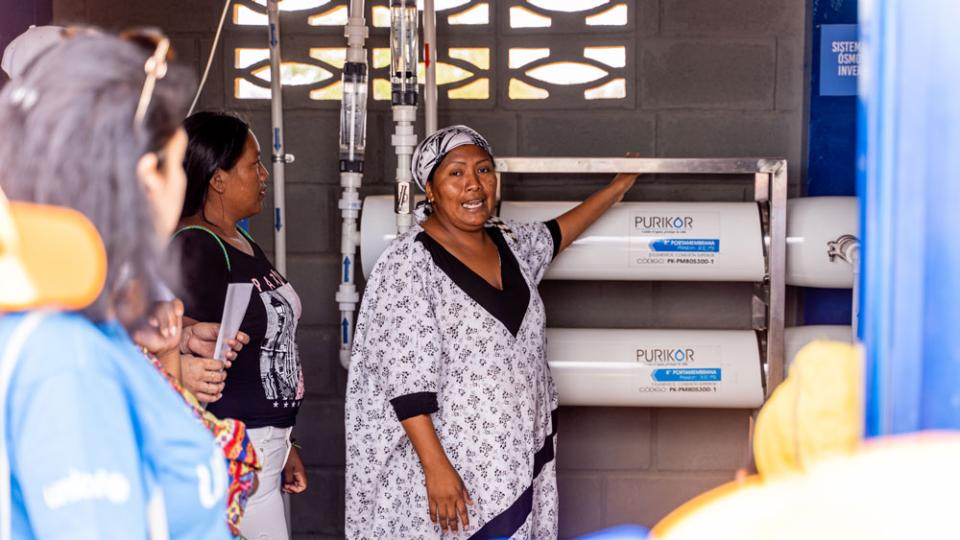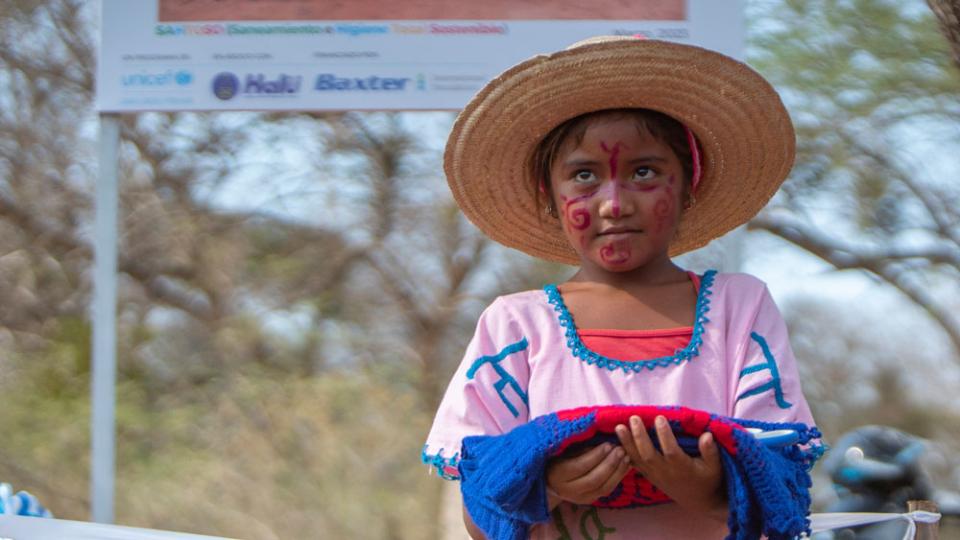Baxter & UNICEF USA's Partnership: Improving Health with Safe Water and Sanitation
Partner since 2020
The Baxter International Foundation (the philanthropic arm of Baxter International Inc.) has partnered with UNICEF since 2020, investing more than $7 million to support global disaster relief efforts and increase access to healthcare through clean water, sanitation and climate resilient initiatives. As part of this collaboration, the Baxter International Foundation and UNICEF are partnering to help improve access to water, sanitation and hygiene (WASH) programming for families and children in Colombia and Egypt.

“Investing in clean water and sanitation initiatives is a key priority for the Baxter International Foundation as part of our commitment to increase access to health care. We are proud to partner with UNICEF to build critically needed water infrastructure for communities in need,” said Verónica Arroyave, executive director of the Baxter International Foundation.
Growing up in a clean and safe environment is every child’s right. However, the effects of climate change are contributing to inequitable access to clean water and basic sanitation in many areas worldwide, threatening the well-being of children everywhere. Having access to an environment with safe water, basic toilets and good hygiene practices is crucial in giving children a healthy start to life.
Since 2020, the Baxter International Foundation has partnered with UNICEF to support the global COVID-19 pandemic response. The Foundation then provided a $1.5 million contribution to a three-year programme in rural northern Colombia starting in 2021. In 2024, the Foundation renewed its commitment in Colombia with an additional $2.5 million to support the programme.
The partnership is supporting the indigenous Wayúu communities in La Guajira to improve health outcomes by increasing access to safe water, sanitation and hygiene, and by strengthening the capacity of local governments with technical assistance to develop rural safe-water projects.
Through the partnership, UNICEF has implemented climate-resilient projects that use solar water pumps and reverse-osmosis filtration to deliver a sustainable source of water, which can be shared with nearby communities. The partnership is also supporting the formation of water committees, where local community members take responsibility for system monitoring, management and community adoption. Women, especially young women, are taking the lead in making the programme successful in the long term.

Building on the success in Colombia, the Baxter International Foundation and UNICEF have expanded the partnership with an additional $2.5 million committed to deliver prevention-focused, climate-resilient services in Aswan, Assiut, Quena, Minya and Luxor in Upper Egypt. This expansion will:
- Increase access for up to 590,000 people to resilient and quality water, sanitation and hygiene services and to education services
- Provide technical support to national and local governments to increase access to WASH services, equipping more than 4,000 households with safe drinking water and sewage connections
- Improve access to quality WASH services in health facilities, including gender-separated and disability-friendly sanitation services
- Help 150 schools and 40 nurseries develop and implement action plans and mitigation strategies focused on climate change and WASH
- Support medical teams at health facilities in delivering climate-adoptive health and nutrition services and education for mothers and children, as well as educating young children and high-risk pregnant and lactating women to equip them with skills to help protect against the impact of climate change on WASH
- Equip 50 health facilities with green sources of power and energy, such as solar panels
Learn more about how UNICEF and companies work together to create better futures for children.